I need to perform the following steps on a data-frame:
- Assign a starting value to the "balance" attribute of the first row.
- Calculate the "balance" values for the subsequent rows based on value of the previous row using the formula for eg : (previous row balance + 1)
I have tried the following steps:
Created the data-frame:
df = pd.DataFrame(pd.date_range(start = '2019-01-01', end = '2019-12-31'),columns = ['dt_id'])
Created attribute called 'balance':
df["balance"] = 0
Tried to conditionally update the data-frame:
df["balance"] = np.where(df.index == 0, 100, df["balance"].shift(1) + 1)
From what I can observe, the value is being retrieved for subsequent update before it can be updated in the original data-frame.
The desired output for "balance" attribute :
Row 0 : 100
Row 1: 101
Row 2 : 102
And so on
